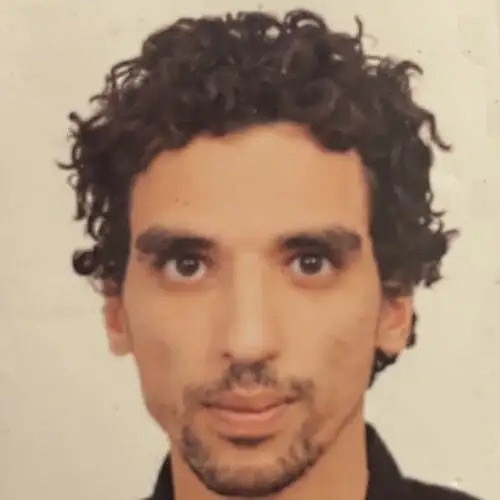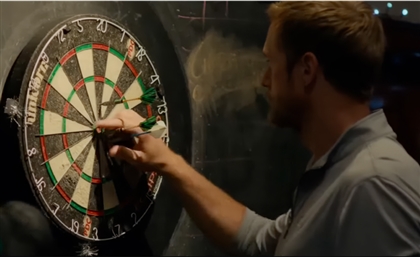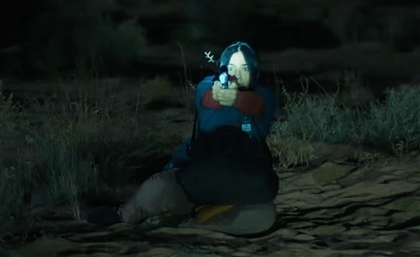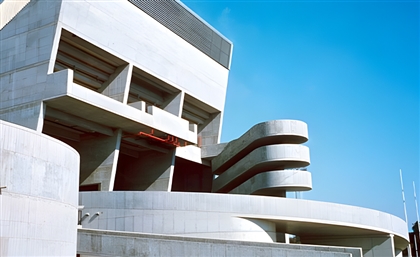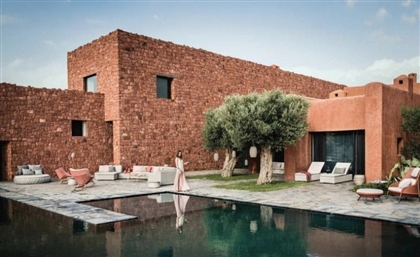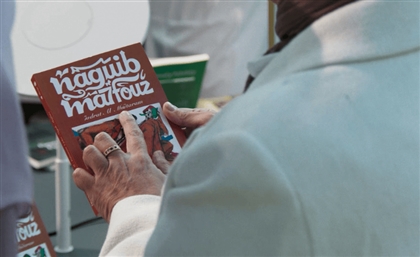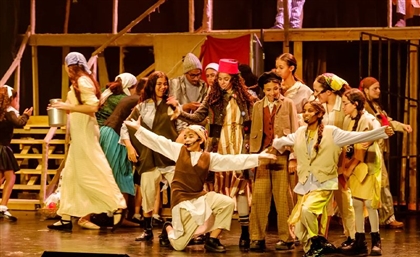Review: Gaza Doc ‘Put Your Soul On Your Hand & Walk’ Shook Cannes
Through Farsi’s lens, we are left with more than just a memory of Palestinian photojournalist Fatma Hassona.
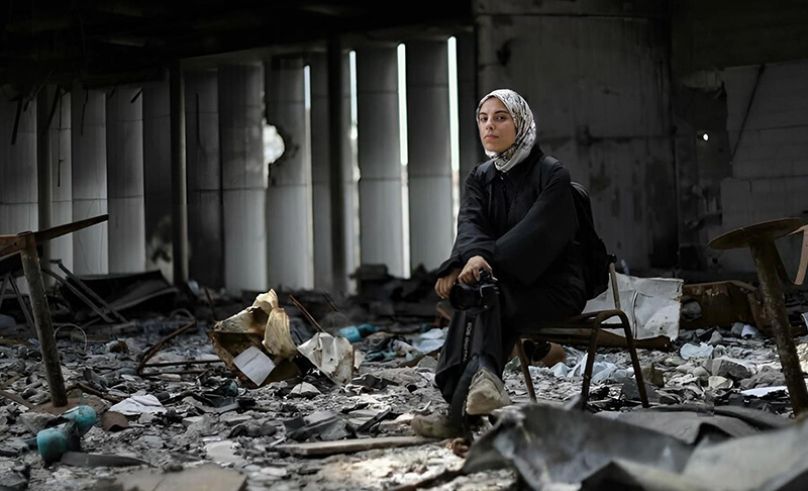
One of the most talked-about films at this year’s Cannes Film Festival is Put Your Soul On Your Hand And Walk, a documentary by Iranian director Sepideh Farsi. Just two days after it was announced in the ACID (Association for the Distribution of Independent Cinema) line-up, I received an email from the programming filmmakers addressed to critics and journalists. Here are some excerpts from the letter:
“We, filmmakers and members of the ACID team, met Fatma Hassona when we discovered Sepideh Farsi's film Put your soul on your hand and walk during the Cannes programme. Her smile was as magical as her tenacity: bearing witness, photographing Gaza, distributing food despite the bombs, mourning and hunger. We heard her story, we rejoiced at each of her appearances to see her alive, we feared for her. Yesterday, we were shocked to learn that an Israeli missile had targeted her building, killing Fatma and her family. We had watched and programmed a film in which this young woman's life force seemed like a miracle. This is no longer the same film that we are going to support and present in all theaters, starting with Cannes. All of us, filmmakers and spectators alike, must be worthy of her light.”
-2c5c5fd4-2607-4426-866b-edd928aa5ec8.jpg) Farsi included some words of her own. She shared her personal reaction to the news:
Farsi included some words of her own. She shared her personal reaction to the news:
“When I heard the news yesterday, I first refused to believe it, thinking it was a mistake, like the one a few months ago when a family with the same surname had perished in an Israeli attack. Incredulous, I called her then sent her a message, and then another one, and another one. All those bright existences were crushed by a finger that pressed on a button and dropped a bomb to erase one more house in Gaza.”
Shortly afterward, filmmaker Ken Loach, a two-time Palme d’Or winner, responded with his own letter, honoring Fatma Hassona: “Young Fatima clearly foresaw her own murder, and said ‘I want a loud death’.” He then ended with a powerful call to action: “On 15th May, the day of the screening, can we honour this courageous young woman, and her fellow Palestinian journalists, (no foreign journalist has been allowed into Gaza) who gave their lives to bear witness to mass murder. Can we all make her death as loud as possible, and insist that States carry out their duties under the Genocide Convention?”
A wave of support followed. On the first day of the Cannes Film Festival, a third letter was released, denouncing the silence of Hollywood over Israel’s military actions in Gaza. The statement quickly gathered over 400 celebrity signatures.
Among the signatories were Joaquin Phoenix, Guillermo del Toro, and Pedro Pascal, Mark Ruffalo, Javier Bardem, Ralph Fiennes, Susan Sarandon, Viggo Mortensen, Guy Pearce, Brian Cox, Pedro Almodóvar, Melissa Barrera, David Cronenberg, and others. Additional names such as Rooney Mara, Omar Sy, Peter Straughan, Boots Riley, Alice Rohrwacher, Arian Moayed, Odessa Rae, Adèle Haenel, and Noémie Merlant were added later.
-014405de-c469-44cd-9fc1-4c47440fc698.jpg) When asked why she hadn’t signed, Cannes Jury President Juliette Binoche told a reporter, “I cannot answer you,” before adding, “You will maybe understand it a little later.” The cryptic response led to speculation that she had been pressured not to sign. A day later, Binoche added her name to the letter.
When asked why she hadn’t signed, Cannes Jury President Juliette Binoche told a reporter, “I cannot answer you,” before adding, “You will maybe understand it a little later.” The cryptic response led to speculation that she had been pressured not to sign. A day later, Binoche added her name to the letter.
All of this unfolded before the film had even screened. Naturally, the film’s screening became one of the most sought-after tickets at Cannes. When I arrived to the screening, the first thing I noticed was the queue. It stretched two blocks down the street. Many in line were wearing kuffiyehs, turning the entrance into a powerful statement of solidarity with Palestine.
Before the film started, Farsi took the stage. She fought back tears as she introduced the film. Throughout the screening, loud sobs erupted across the room. By the time the credits rolled, there wasn’t a dry eye in the house. Everyone in the room stood and applauded the filmmaker. She held up a large photo of Fatma raising her fist in defiance. It was, without doubt, the most emotionally charged screening I’ve ever witnessed at Cannes.
The film is essentially told through a series of video calls between the director and the young photojournalist. What struck me most was that it focused less on the horrors of war, and more on the bond between them. I was pleasantly surprised by that. In fact, I think that’s exactly why it hit so much harder. We got to know Fatma Hassona. Her warmth, her humor, her resilience. By the end, it didn’t feel like we were just watching a story unfold. It felt like we were losing someone we had come to care about deeply.
-834c389d-6844-4851-a98b-e3cdc98720da.jpg) There’s a scene towards the end that’s particularly difficult to watch. It was surely added after her death. The director tells Fatma that the film has been selected for Cannes. Fatma lights up. You can see her unable to contain her joy. Farsi cautiously brings up the possible risks of the film’s visibility on this big stage. She suggests relocating her family to a different building for safety, but Fatma refuses. She insists on staying, calling the place her home. What makes this moment so hard-hitting is that we, the viewers, already know what’s coming.
There’s a scene towards the end that’s particularly difficult to watch. It was surely added after her death. The director tells Fatma that the film has been selected for Cannes. Fatma lights up. You can see her unable to contain her joy. Farsi cautiously brings up the possible risks of the film’s visibility on this big stage. She suggests relocating her family to a different building for safety, but Fatma refuses. She insists on staying, calling the place her home. What makes this moment so hard-hitting is that we, the viewers, already know what’s coming.
The film itself is told in a very specific and intimate way. Farsi often films the screen of her phone during video calls and records news reports playing on her television. She intercuts these ‘screened screens’ with photographs taken by Fatma. By embedding layers of screen-within-screen imagery, the director draws attention to the act of witnessing. The filmmaking method highlights how contemporary conflict is increasingly seen through interfaces, pixels, and social media platforms. It becomes a document of a genocide being archived in the digital age. We grow closer to Fatma through these calls. Yet, we are always reminded of the barriers that separate us from those in the front lines. These barriers are not just geographical, but technological. Their video calls constantly get disrupted by a loss of connection. The screen becomes both a portal and a partition, a channel of connection and a wall.
Put Your Soul On Your Hand And Walk is not just a film. It is an elegy, a protest, and a record of resistance. It immortalizes a voice that tried to make the world see, even as that world looked away. Through Farsi’s lens, we are left with more than just a memory of Fatma Hassona. We are left with an obligation. To witness. To remember. To speak. To act.
- Previous Article Saudi Film Commission Launches JAX Film Studios in Riyadh
- Next Article Inside Egypt’s Seven UNESCO World Heritage Sites







